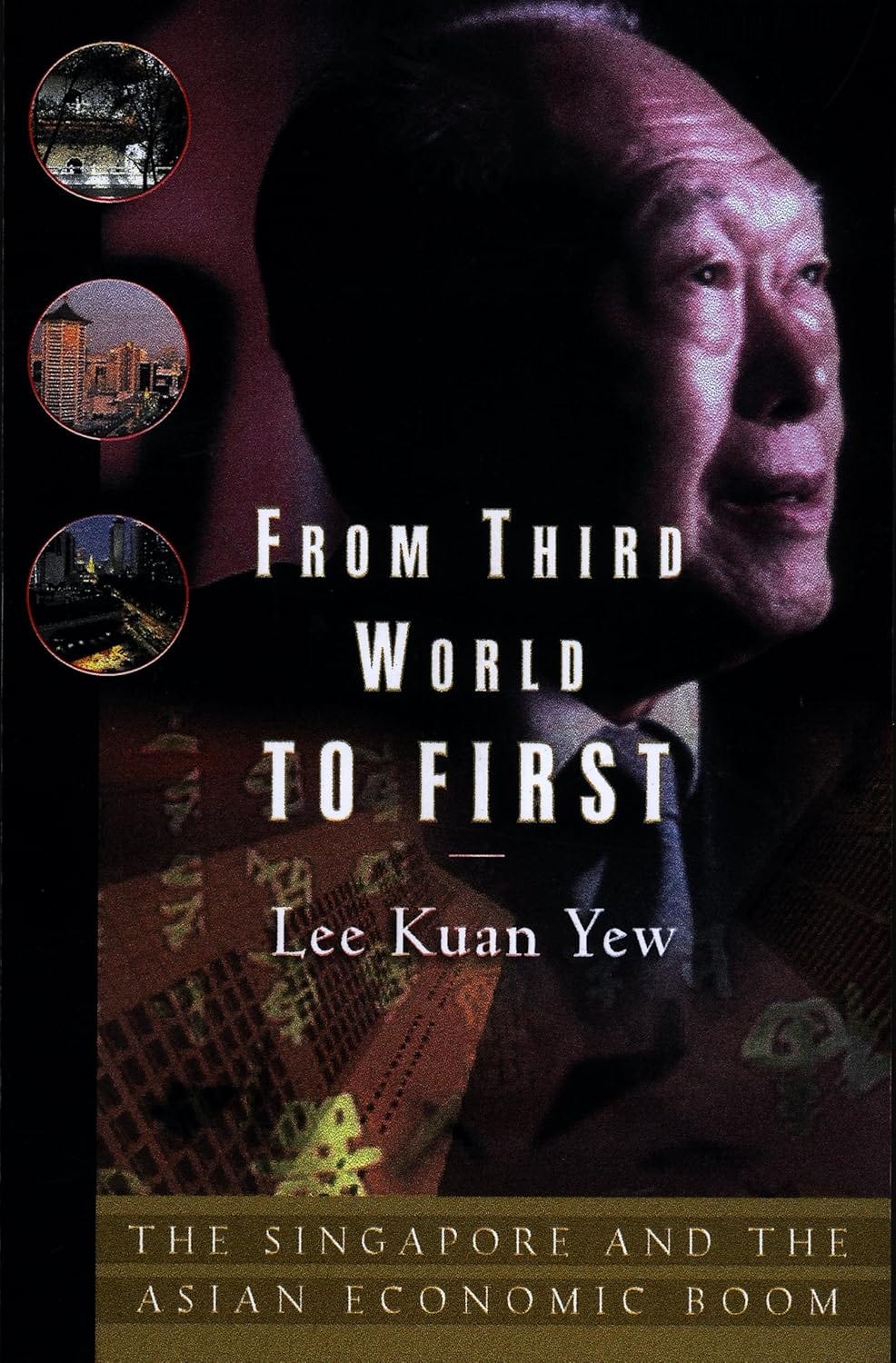Lee Kuan Yew's memoir From Third World to First chronicles Singapore's remarkable transformation from a struggling post-colonial outpost to a global economic powerhouse. When Singapore gained independence in 1965 after being expelled from Malaysia, it faced overwhelming odds: no natural resources, ethnic tensions, housing shortages, high unemployment, and hostile neighbors.
The book details how Lee, as Prime Minister, tackled these challenges with pragmatism and determination. After Malaysia severed economic ties, Singapore lost its economic hinterland overnight. Lee recalls the moment when "I was filled with gloom and despair, but I kept these thoughts to myself." Instead of surrendering to despair, he assembled a team of brilliant ministers to reimagine Singapore's future.
One of Lee's most consequential decisions was to maintain English as Singapore's working language while preserving mother tongues (Mandarin, Malay, Tamil). This bilingual policy positioned Singapore to attract multinational corporations when globalization accelerated. As Lee notes, "If we were monolingual in our mother tongues, we would not make a living. Becoming monolingual in English would have been a setback."
The book recounts Singapore's unconventional approach to public housing. When squatter settlements proliferated, Lee's government built affordable high-rise apartments that citizens could purchase with their retirement savings. Lee writes, "I visited one family who had lived in a squatter hut with no modern sanitation. The husband told me, 'I never believed that one day I would live in a flat with electricity, modern sanitation, and running water.'" Today, over 80% of Singaporeans live in these public housing developments.
Lee vividly describes how his government transformed a corruption-ridden society into one of the world's cleanest. When a minister accepted a free holiday from a businessman seeking favors, Lee confronted him immediately. "I told him this was wrong...and that he had to return to Singapore right away." Such zero-tolerance policies made corruption a high-risk, low-reward proposition.
The memoir also covers Singapore's foreign relations, including Lee's meetings with world leaders from Deng Xiaoping to Margaret Thatcher. When Nixon asked for his advice on Vietnam, Lee candidly told him that America couldn't win a guerrilla war in Asia. This straight-talking earned him respect internationally.
Some of Lee's policies were controversial, particularly his restrictions on press freedom and political opposition. He justified these measures as necessary safeguards against communal violence and communist subversion, citing how "words lead to deeds" in Singapore's volatile early days.
Lee's obsession with cleanliness led to Singapore's infamous ban on chewing gum. He explains, "If you can't think because you can't chew, try a banana", demonstrating his prioritization of public orderliness over personal freedoms.
By the book's conclusion, Singapore had transformed from a country with a per capita GDP of $500 to over $20,000. Lee attributes this success to incorruptible leadership, meritocracy, and willingness to adopt policies that worked, regardless of ideology. The Singapore story serves as a compelling case study of how visionary leadership and pragmatic policies can overcome seemingly insurmountable obstacles.
Get the book : USA | India | UK
Check out the previous books we’ve covered:
How the World Really Works | Genghis Khan and the Making of the Modern World | Meditations | When Breath Becomes Air | Alchemy | Siddhartha | The Design of Everyday Things | A Short History of Nearly Everything | The Inevitable | Chip War | Same As Ever


